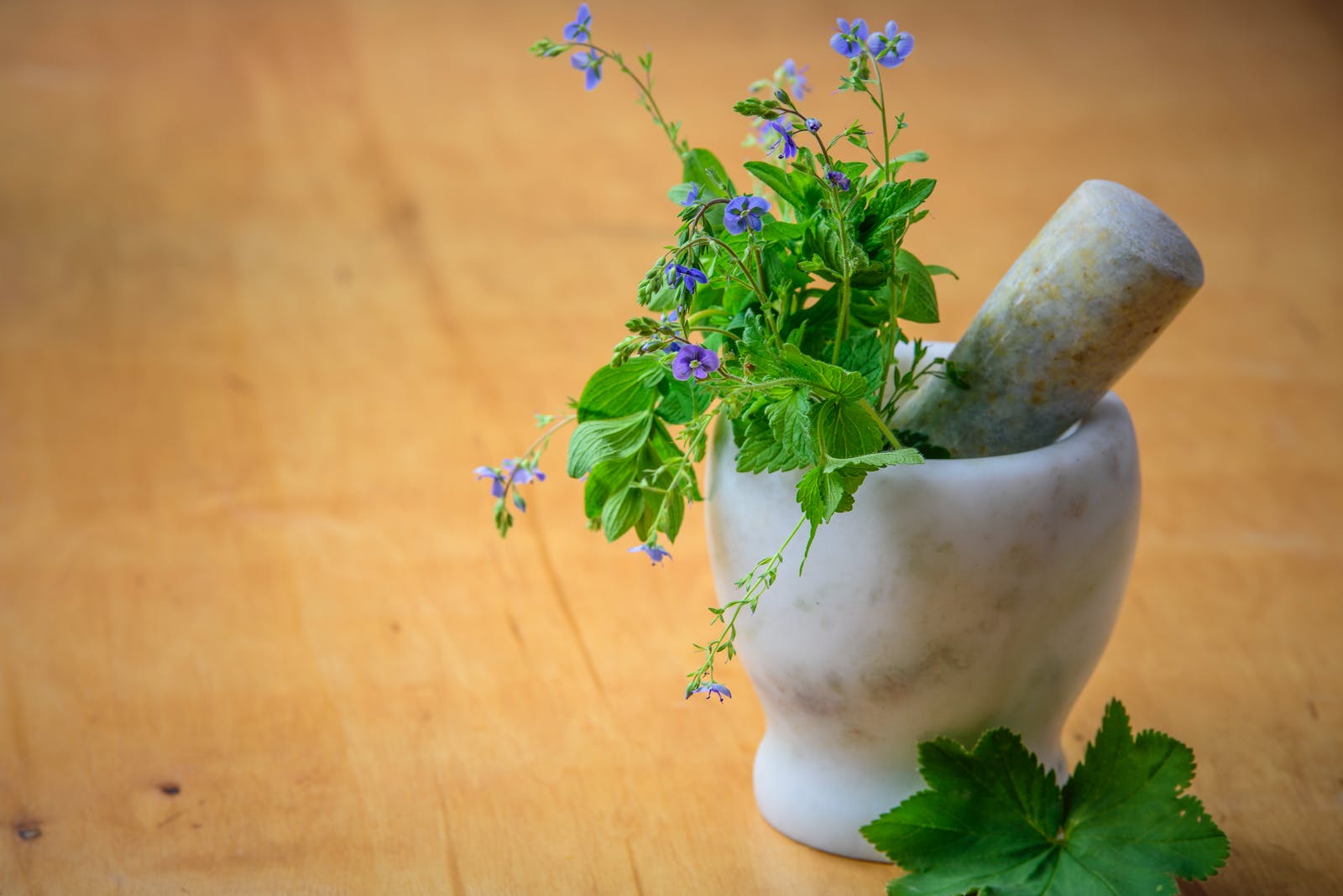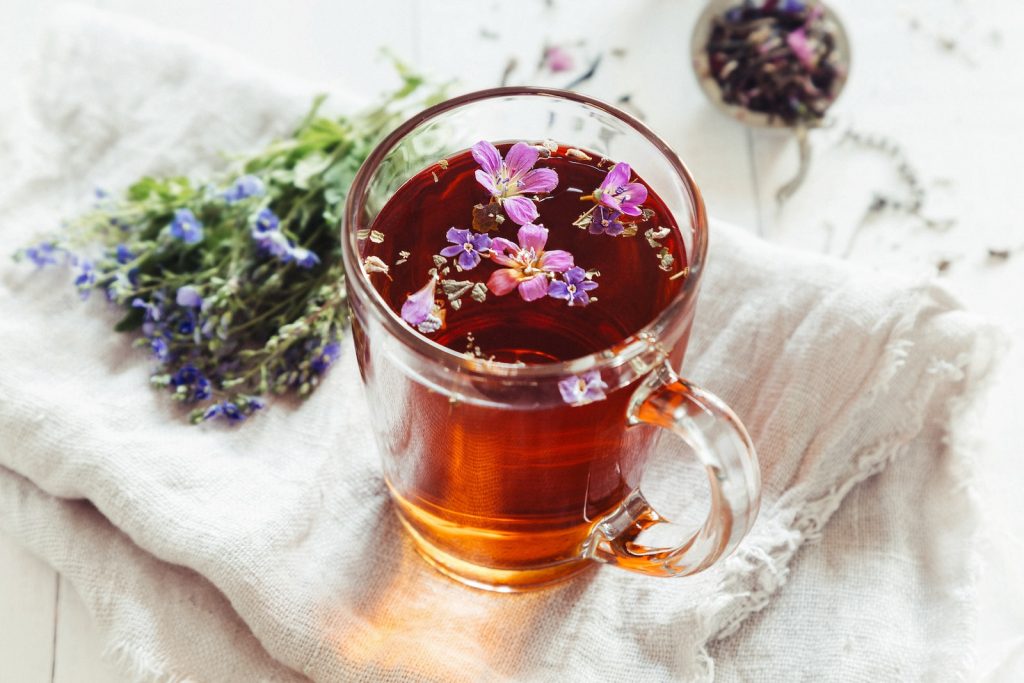Mastering Stress and Anxiety: The Top Herbal Remedies You Need to Know
Did you know that over forty million adults in the United States suffer from stress and anxiety?
If you’re looking for natural ways to find relief, look no further.
In this article, we will explore the top herbal solutions that can help you combat stress and anxiety.
From the calming properties of lavender to the stress-relieving effects of chamomile, these natural remedies can bring balance and tranquility to your life.
So, let’s dive in and discover the power of nature in soothing your mind and body.
Key Takeaways
- Lavender, chamomile, valerian root, ashwagandha, passionflower, and lemon balm are all herbal remedies that can help reduce stress and anxiety.
- Lavender essential oil, lavender tea, and chamomile tea can promote relaxation, improve sleep quality, and reduce anxiety.
- Valerian root can promote restful sleep and reduce anxiety levels, while ashwagandha helps regulate cortisol levels and promotes hormonal balance.
- Passionflower and lemon balm can promote deep relaxation, improve sleep quality, reduce muscle tension, and enhance mood and cognitive function.
Lavender: The Calming Herb
You can use lavender to calm your mind and reduce stress and anxiety. Lavender has long been recognized for its soothing properties and has been used for centuries to promote relaxation and tranquility.
This fragrant herb is known for its delicate purple flowers and sweet aroma, but it is its therapeutic benefits that make it truly remarkable.
The benefits of lavender are vast and varied. One of the most popular uses of lavender is in the form of essential oil, which can be diffused or applied topically for its calming effects.
Research has shown that lavender essential oil can help reduce anxiety, improve sleep quality, and promote a sense of calmness. It has also been found to have anti-inflammatory and analgesic properties, making it a natural remedy for headaches and muscle tension.
In addition to its aromatic and topical uses, lavender can also be consumed as tea or added to culinary dishes.
This versatile herb not only adds a delightful flavor to dishes but also provides a range of health benefits. Lavender tea is known for its calming and soothing effects, making it a perfect beverage to enjoy before bedtime.
As we explore further in this article, we will discover another natural stress reliever: chamomile.
Chamomile: A Natural Stress Reliever
Chamomile offers a natural way to relieve stress and anxiety. This herb has been used for centuries due to its calming properties and numerous health benefits.
One fashionable way to consume chamomile is through tea, which can be easily prepared by steeping dried chamomile flowers in hot water. Here are three reasons why chamomile tea is an effective stress reliever:
- Soothes the mind: Chamomile contains compounds that interact with the brain’s receptors, promoting relaxation and reducing anxiety. Drinking chamomile tea can help calm a racing mind and promote a sense of tranquility.
- Eases muscle tension: Stress often manifests in the body as muscle tension, leading to discomfort and pain. Chamomile tea acts as a natural muscle relaxant, helping to alleviate tension headaches and tight muscles caused by stress.
- Improves sleep quality: Lack of sleep can exacerbate stress and anxiety. Chamomile tea has mild sedative properties that can help induce sleep and improve sleep quality. Drinking a cup of chamomile tea before bedtime can promote a restful night’s sleep, allowing you to wake up feeling refreshed and ready to face the day.
Incorporating chamomile tea into your daily routine can provide a natural and integrated approach to managing stress and anxiety. Enjoy the benefits of this herbal remedy and experience a greater sense of calm and well-being.
Valerian Root: Promoting Restful Sleep
Looking for a natural way to promote restful sleep and reduce anxiety? Valerian root may be just what you need. This powerful herb is known for its calming effects, helping you to achieve a more peaceful night’s sleep. Not only is valerian root safe and non-addictive, but it also serves as a natural remedy for anxiety, making it a holistic solution for those seeking a sense of calm and tranquility.
Valerian’s Calming Effects
Valerian’s calming effects on your mind and body make it an effective herbal remedy for promoting restful sleep. When you incorporate valerian into your bedtime routine, you can experience the following benefits:
- Deep relaxation: Valerian’s natural compounds help calm your nervous system, allowing you to unwind and release tension, which in turn prepares your body for a peaceful sleep.
- Reduced anxiety: Valerian has been shown to have a positive impact on anxiety levels, helping to alleviate racing thoughts and promote a sense of calmness, allowing you to drift off into a more tranquil sleep.
- Improved sleep quality: By promoting restful sleep, valerian can enhance the overall quality of your sleep, allowing you to wake up feeling refreshed and rejuvenated.
With valerian’s calming properties, you can safely improve your sleep and wake up ready to face the day with renewed energy and vitality.
Safely Improving Sleep
To safely improve your sleep, try incorporating valerian root into your bedtime routine for its restful sleep-promoting properties. Valerian root has been used for centuries as a natural remedy for sleep issues. Its calming effects can help improve sleep quality and alleviate the negative effects of sleep deprivation.
Incorporating valerian root into your routine is simple. You can brew a cup of valerian tea before bed or take valerian root supplements. The recommended dosage is typically 400-900 milligrams, taken 30 minutes to two hours before bedtime. It’s important to note that it may take a few weeks of consistent use to experience the full benefits.
Valerian root works by increasing the levels of GABA – a neurotransmitter that helps regulate brain activity and promote relaxation. This can help calm an overactive mind, making it easier to fall asleep and stay asleep throughout the night.
Natural Anxiety Remedy
Improve your sleep and reduce anxiety by incorporating valerian root into your nighttime routine. Valerian root is a natural anxiety remedy that has been used for centuries to promote restful sleep and alleviate stress. Here are three reasons why valerian root is a holistic stress relief solution:
- Deep relaxation: Valerian root has calming properties that help relax your mind and body, allowing you to unwind and prepare for a peaceful night’s sleep. It helps reduce racing thoughts and promotes a sense of tranquility.
- Improved sleep quality: By incorporating valerian root into your routine, you can experience improved sleep quality. It helps you fall asleep faster and promotes a deeper, more restorative sleep, leaving you feeling refreshed and rejuvenated in the morning.
- Reduced anxiety symptoms: Valerian root has been shown to naturally reduce anxiety symptoms. It works by increasing the levels of gamma-aminobutyric acid (GABA) in the brain, which has a calming effect and helps alleviate feelings of stress and anxiety.
Incorporating valerian root into your nighttime routine can provide natural anxiety remedies and holistic stress relief, allowing you to achieve the restful sleep you deserve.
Ashwagandha: Balancing Stress Hormones
Are you looking for a natural way to balance your stress hormones?
Ashwagandha, an ancient herb known for its adaptogenic properties, may be just what you need. Studies have shown that ashwagandha can help regulate cortisol levels, the hormone responsible for the body’s stress response.
By promoting hormonal balance, ashwagandha can help reduce anxiety and promote a sense of calm and well-being.
Hormonal Balance and Stress
If you’re struggling with hormonal imbalance and stress, ashwagandha can help in balancing your stress hormones.
Hormonal imbalance can have various effects on your body, including increased stress levels and weight gain. Ashwagandha, a powerful herb, can provide natural support for your hormonal balance and help you manage stress more effectively.
Here are three ways ashwagandha can benefit you:
- Regulating cortisol levels: Cortisol, also known as the stress hormone, can wreak havoc on your body when it’s out of balance. Ashwagandha has been shown to reduce cortisol levels, promoting a more balanced stress response.
- Supporting thyroid function: Hormonal imbalance can often impact thyroid health, leading to symptoms like fatigue and weight gain. Ashwagandha has been found to support thyroid function and help regulate metabolism.
- Enhancing mood and energy: Chronic stress can drain your energy and negatively affect your mood. Ashwagandha has adaptogenic properties, meaning it can help your body adapt to stress and promote a sense of calm and well-being.
Ashwagandha for Anxiety
If you’re looking for a natural solution to relieve anxiety and balance stress hormones, ashwagandha is an excellent option.
This powerful herb, also known as Withania somnifera, has been used for centuries in Ayurvedic medicine for its numerous health benefits.
Ashwagandha has been shown to reduce anxiety and improve overall well-being by modulating the body’s stress response and balancing stress hormones such as cortisol.
It acts as an adaptogen, helping the body adapt to stress and promoting a sense of calm.
To utterly understand the benefits of ashwagandha, let’s look at its key properties:
| Property | Benefits | Dosage |
|---|---|---|
| Anti-anxiety | Reduces anxiety and promotes relaxation | 250-600mg per day |
| Stress reduction | Balances stress hormones | 250-600mg per day |
| Mood improvement | Enhances mood and overall well-being | 250-600mg per day |
Passionflower: Relaxing the Mind and Body
Relax your mind and body with passionflower, a natural solution for stress and anxiety. Passionflower has long been used as an herbal remedy for its calming properties. Here are three ways passionflower can help you relax and find peace:
- Deep relaxation: Passionflower contains compounds that have been shown to promote relaxation and reduce anxiety. By incorporating passionflower into your relaxation techniques, such as deep breathing exercises or meditation, you can enhance the calming effects and achieve a state of deep relaxation.
- Improved sleep: Stress and anxiety can often disrupt our sleep patterns, leaving us feeling tired and restless. Passionflower has been found to have sedative properties, making it an excellent natural remedy for insomnia. By consuming passionflower tea or taking passionflower supplements before bed, you can promote a restful night’s sleep and wake up feeling refreshed.
- Reduced muscle tension: When we are stressed or anxious, our muscles tend to become tense and tight. Passionflower has muscle-relaxing properties that can help alleviate muscle tension and promote a sense of physical relaxation. Incorporating passionflower into your self-care routine, such as using passionflower-infused lotions or oils for massages, can help release tension and promote overall relaxation.
Incorporating passionflower into your daily routine can be a natural and effective way to relax your mind and body.
Remember to consult with a healthcare professional before starting any new herbal remedies.
Lemon Balm: Easing Anxiety and Nervousness
Ease your anxiety and nervousness with lemon balm, a natural herbal solution that can provide relief.
Lemon balm, also known as Melissa officinalis, has been used for centuries to promote calmness and relaxation. Its gentle and soothing properties make it a popular choice for those seeking natural remedies for stress and anxiety.
Lemon balm benefits are numerous and have been backed by scientific research. It contains compounds that have been found to have a positive impact on mood and cognitive function. Studies have shown that lemon balm can help reduce anxiety, improve sleep quality, and enhance overall well-being.
To incorporate lemon balm into your daily routine, you can enjoy it as a tea, take it in capsule form, or use it as an essential oil. Here are some lemon balm uses:
| Lemon Balm Uses | Benefits |
|---|---|
| Drinking as a tea | Calms the mind and reduces anxiety |
| Taking as a supplement | Promotes restful sleep and relaxation |
| Using as an essential oil | Relieves tension and uplifts mood |
| Applying as a topical cream | Soothes irritability and promotes tranquility |
| Adding to bath water | Helps relax the body and ease muscle tension |
Frequently Asked Questions
Are There Any Potential Side Effects or Interactions to Be Aware of When Using Lavender as a Calming Herb?
When using lavender as a calming herb, it’s important to be aware of any potential side effects or interactions.
Some people may experience skin irritation or allergic reactions when using lavender oil topically. Additionally, lavender may interact with certain medications or supplements, such as sedatives or blood thinners.
It’s always best to consult with a healthcare professional before incorporating lavender into your routine to ensure it is safe and effective for you.
How Long Does It Typically Take for Chamomile to Start Relieving Stress?
Chamomile, ah, the gentle warrior of stress relief. It’s no secret that chamomile has been used for centuries as a natural remedy for anxiety. But how long does it take for this soothing herb to work its magic?
Well, studies suggest that chamomile’s effectiveness kicks in within 30 minutes to an hour. So, if you’re feeling overwhelmed, why not brew yourself a cup of chamomile tea and let its calming properties wash over you?
Oh, and speaking of safety, lavender is generally considered safe with no major side effects.
Can Valerian Root Be Used as a Long-Term Solution for Promoting Restful Sleep?
Valerian root can be a long-term solution for promoting restful sleep.
It’s a natural remedy for insomnia and an alternative to other sleep aids. Many people have found relief by using valerian root regularly. Its calming properties help relax the mind and body, making it easier to fall asleep and stay asleep.
If you’re looking for a comprehensive approach to improving your sleep, valerian root is worth considering.
Is Ashwagandha Safe to Use During Pregnancy or While Breastfeeding?
When it comes to your precious pregnancy or breastfeeding journey, you need to ensure the safety of every choice you make.
So, let’s talk about ashwagandha. Is it safe for you during this time? Well, studies have shown that it’s best to avoid ashwagandha during pregnancy and while breastfeeding, as its effects on these stages are not yet fully understood.
But don’t worry! There are plenty of other natural herbal remedies out there to help you navigate stress and anxiety.
What Is the Recommended Dosage of Passionflower for Relaxation?
The recommended dosage of passionflower for relaxation varies depending on the form you choose.
For dried herbs, you can steep 1-2 teaspoons in hot water for 10-15 minutes, up to three times a day. For liquid extract, aim for 10-30 drops, up to three times a day. Remember to always consult with a healthcare professional before starting any herbal treatment.
It’s important to prioritize your well-being and consider the potential side effects of other herbs like lavender, chamomile, valerian root, and ashwagandha, especially if you’re pregnant or breastfeeding.
Elizabeth Redd: I am a passionate advocate for Health and Healing, dedicated to empowering individuals to live their best lives.
As the founder and publisher of Health and Healing, I have established myself as a guiding force in the wellness industry.
I am committed to providing the latest research, holistic approaches, and inspiring stories to open new possibilities for your health and healing journey.
Learn more about Elizabeth and Join Us at Health and Healing. Also, check out My About Page.






0 Comments